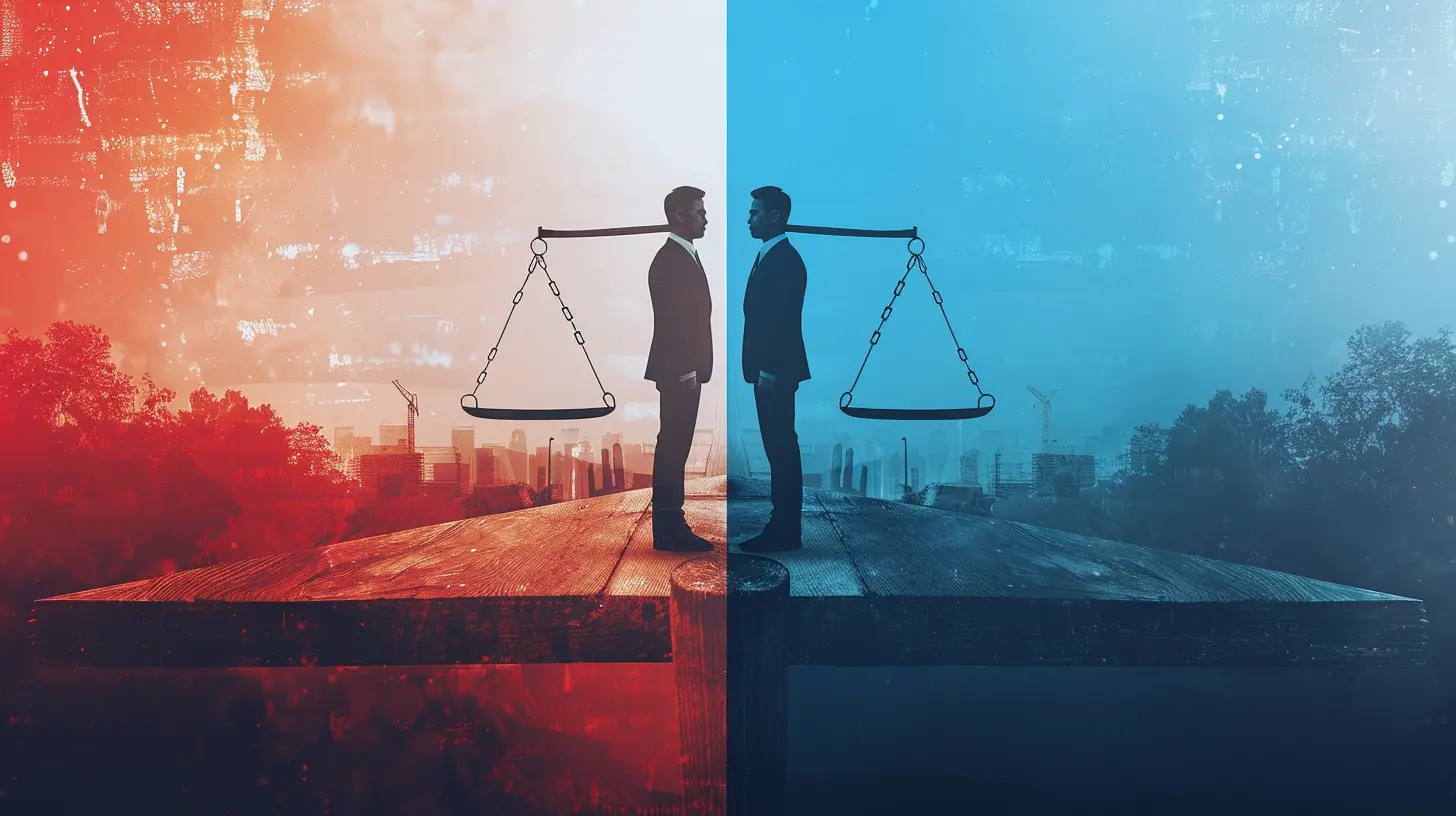Licensing vs. Owning: Which Business Model Suits Your Product?
29 June 2025
So, you've got a killer product idea—maybe it's the next game-changing gadget, a brilliant piece of software, or even a hairbrush that doubles as a Bluetooth speaker (hey, I’m not here to judge). But now you're scratching your head wondering, “Should I license this thing out or own the whole operation myself?”
Welcome to the great duel of Licensing vs. Owning. Spoiler alert: there’s no “one-size-fits-all” answer, but by the end of this article, you’ll have a clearer idea of which path might suit your product—and more importantly, your sanity.
Let’s dive in, shall we?
What’s the Big Difference Anyway?
Before we go deep, let’s lay the groundwork. And don’t worry, this isn’t another MBA lecture with pie charts and laser pointers.What Is Licensing?
Licensing is like renting out your brainchild. You, the inventor or owner of a product or intellectual property (IP), give another company the right to manufacture, distribute, or sell it. In return, they give you money. Sweet. This money usually comes in the form of royalties (think of these as little paychecks that say, “Thanks for the brilliance, buddy”).What Is Owning?
Owning means you’re the boss. You're manufacturing, distributing, marketing, and selling your product. You're handling everything—cradle to grave. If it flops, it’s all on you. If it crushes the market? Champagne and confetti are also all yours.So... licensing is handing over the reins (for a price), and owning is holding onto the horse and galloping into the wild unknown.
The Case for Licensing: Kick Back and Cash In
Licensing can feel like hitting the “easy” button—at least compared to running a full-blown business. Here’s why it may be worth considering.1. It’s Low Risk, Baby
Starting a business is kind of like skydiving without knowing if your parachute is a backpack full of snacks. Licensing lets someone else take the leap (and the risks), while you watch from a cozy lounge chair, sipping coffee and collecting checks.You don’t need to sink cash into manufacturing, distribution, inventory, staffing, or Amazon ads named “Operation: Sell This Thing.”
2. It’s a Time Saver
Want your weekends back? Don’t want to spend your nights learning about supply chain logistics over a bowl of cold ramen? Licensing lets you stay lean and mean.Once you’ve signed a licensing agreement, your involvement is usually limited. The licensee handles the dirty work while you collect royalties for being the genius behind the curtain.
3. Tap Into Bigger Brands and Networks
Let’s be real—big companies have the infrastructure, the contacts, and the moolah to scale your product faster than you can say, “Shark Tank.” Licensing can plug you directly into that ecosystem, which is fancy-speak for “you get access to their toys and playground.”You piggyback off their experience, marketing muscle, and distribution channels. Not bad for something you created in your garage, huh?
4. Great for Serial Idea Machines
If you’re the type who wakes up at 2 a.m. scribbling new product doodles on napkins, licensing is your jam. It frees you up to move from one idea to the next without having to commit a decade to each one.Think of it like dating instead of marrying all your ideas.
But Wait—Licensing Isn’t All Sunshine and Passive Income
1. Limited Control
Here’s the kicker: once you license your product, you’re not the boss anymore. If the licensee messes up the quality, marketing, or pricing, there’s not much you can do (unless you wrote an iron-clad contract—which… did you?).2. Lower Profit Margins
Yes, you get royalties. But they’re usually a small percent of the revenue—typically between 3% and 10%. That means if your product is raking in millions, you're only walking away with a slice of the pie.If you’re hoping for yacht money, you might be better off going the ownership route.
The Case for Owning: Control the Empire
Now let’s switch gears. Want to be the CEO of your product’s destiny? Owning might just be your jam.1. Full Control, Baby
When you own the operation, you make every decision. Want to pivot last-minute? Throw in a new feature? Rebrand entirely? Go for it. No red tape, no permission slips.You're the captain of the ship—and the barista, and the plumber, and the guy swabbing the deck. Okay, it’s a lot of hats, but sometimes that’s exactly how you want it.
2. Maximize Your Profits
Here’s the upside to doing all the heavy lifting: you get to keep all the profits. No royalty crumbs. No splitting revenue. Every dollar that comes in is YOUR dollar (minus expenses and Uncle Sam, of course).If you believe your product has huge potential and you'd rather cash in fully, owning is where the money's at.
3. Build Brand Equity
When you own the product, you’re not just selling an item—you’re building a brand. And brands have value. Over time, your business can become an asset in itself, valuable beyond the product it sells.Think of it like turning your lemonade stand into the next Honest Tea. Branding and ownership go together like peanut butter and… more peanut butter.
Owning Ain’t for the Faint of Heart
1. It's Risky Business
There's no sugarcoating it—starting and running your own business is tough. You’re pouring your time, money, and maybe even your sanity into the project. If the product tanks, there’s no safety net. It’s just you and the paper trail of receipts.2. It’s a Time Gobbler
Running a business eats time like a kid in a candy store. Inventory problems, customer service issues, marketing strategies, website building—it all stacks up fast.If your goal is to launch more products or have free time for, you know, life, this might not be your most relaxing option.
3. Requires Capital
Unlike licensing, owning requires some serious upfront investment. You’ll need to pay for manufacturing, packaging, storage, shipping, and possibly some therapy too.If the phrase “business loan” gives you anxiety, you may want to weigh this one carefully.
So… Which One’s Right for Your Product?
Good question, my entrepreneurial friend. Let’s break it down with some hypotheticals.You Should License If...
- Your product has broad appeal but requires mass distribution to succeed.- You lack the resources, time, or capital to start manufacturing.
- You’re more of an ideas person than a business operator.
- You’d rather avoid the logistical nightmare of running a company.
- You’re okay with smaller profits in exchange for less work and risk.
You Should Own If...
- You want full control over your brand and business direction.- You're ready to invest time and money into scaling the product yourself.
- You believe the product could become part of a larger empire.
- You want to keep 100% of the profits.
- You’ve got some experience (or at least stomach) for running a business.
Real Talk: Why Not Both?
Here’s a spicy little plot twist—not everything has to be either/or.Some entrepreneurs start off by owning their product to prove it works and gain traction. Later, they license it out when scaling becomes too much to handle solo. Others license in one region and own the business in another.
Business isn’t always black-and-white. Sometimes it’s a delicious shade of opportunity grey.
Final Thoughts: Pick the Model That Fits Your Life (Not Just Your Product)
At the end of the day, whether you choose licensing or owning often has less to do with the product—and more to do with YOU.Do you want a lean-back, hands-off journey where your biggest concern is checking your royalty payments? Licensing.
Do you want to get in the mud, build an empire, and (maybe) retire with a yacht named after your dog? Owning.
Either way, you’re doing something most people only dream about—bringing a new product to life. So give yourself some credit. And maybe take a nap. You’ve earned it.
all images in this post were generated using AI tools
Category:
Business ModelsAuthor:

Baylor McFarlin
Discussion
rate this article
2 comments
Aris McMurtry
Great article! Choosing between licensing and owning can be so tricky. It really depends on your product and goals. I loved how you highlighted the pros and cons of each model—it definitely made things clearer. Thanks for sharing!
November 9, 2025 at 1:57 PM

Baylor McFarlin
Thank you for your kind words! I'm glad you found the pros and cons helpful in making your decision.
Winter Estes
This article raises intriguing points about the pros and cons of licensing versus ownership. I'm curious how different industries adapt these models. It’s fascinating to consider which might offer better growth opportunities for innovative products!
July 10, 2025 at 4:53 AM

Baylor McFarlin
Thank you for your insightful comment! Different industries do indeed adapt these models in unique ways, and examining their growth potential can reveal valuable strategies for innovation.


